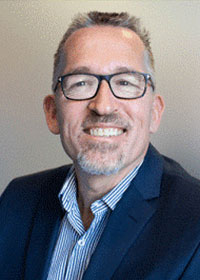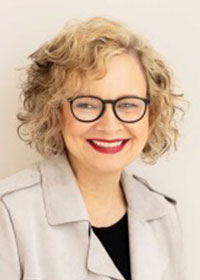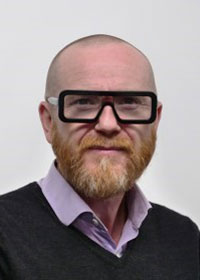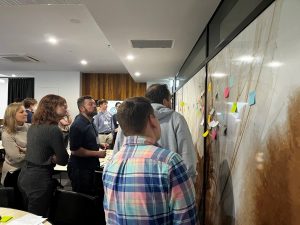Fulbright Chronicles, Volume 2, Number 3 (2023)
Author
Iain Butterworth, Angela Heise, and Jon Adams
Abstract
Fulbright alumni often return home with visions of leading personal, institutional, and societal change. However, they often face challenges in implementing social entrepreneurship. This paper introduces the Australian Fulbright Leadership Development Program, emphasizing the transformative learning styles that are needed to empower scholars as reflective, tactical, and tenacious lifelong learners and change agents. The program’s foundation in peer learning, goal-setting, and social support is outlined, along with participant outcomes and evaluation findings.
Keywords
leadership • entrepreneurship • adult learning • peer support



Introduction: Fulbright is about Leadership
The Fulbright Program is dedicated to fostering “mutual understanding between nations, advancing knowledge across communities, and improving lives worldwide”. The Fulbright Program provides scholars with a unique opportunity to enact Brookfield’s definition of adult learning, namely “to make sense of and act upon the personal, social, occupational and political environments in which they live”. The Australian Fulbright Alumni Association (AFAA) envisions building “a vibrant and diverse, connected community” in which alumni “interact with one another to share ideas and knowledge; inspire others and promote free thinking, debate and ideas; and challenge the status quo for a better Australia/world.” Fulbright alumni frequently describe their Fulbright experience as transformative. The program offers scholars a rare chance to gain cross-cultural, political, and historical insights relevant to their field, providing a deeper context for their personal and professional vision.
Like Joseph Campbell’s heroes, who return to the ‘ordinary world’ with a vision for catalyzing systemic change, many alumni often find themselves in disempowering environments back home. These settings lack the cultural readiness, organizational capacity, or necessary resources to embrace new ways of thinking and working, affecting their sense of empowerment and efforts as change agents.
To realize our vision at AFAA, we recognized the need to support alumni to act as purposeful catalysts for change. This involves building conceptual, organizational, and leadership skills that go beyond traditional line management to include securing political support, brokering intersectoral action, and mobilizing community participation.
To realize our vision at AFAA, we recognized the need to support alumni to act as purposeful catalysts for change. This involves building conceptual, organizational, and leadership skills that go beyond traditional line management to include securing political support, brokering intersectoral action, and mobilizing community participation. As noted by Prof John Catford, People need to “analyze, envision, communicate, empathize, enthuse, advocate, mediate, enable, and empower a wide range of disparate individuals and organizations.” To sustain their tactical momentum as change agents, Fulbright alumni also require supportive environments to nurture and use their leadership potential. Alumni associations can play a crucial role in providing not only social support but also opportunities for peer learning, collaboration, mentoring, networking, and leadership development.
Australia’s Inaugural Leadership Development Program
In June 2022, the inaugural Leadership Development Program brought together 33 Fulbright alumni in Australia’s capital, Canberra. The program was organized by the Australian Fulbright Alumni Association (AFAA) in collaboration with Fulbright Australia (FA) and the School of Public Health, University of Technology, Sydney (UTS). This alumni enrichment program was designed to (i) enhance the impact of the Fulbright experience and strengthen alumni connections and collaborations; (ii) foster the exchange of ideas and challenge and inspire participants to perform at their highest level professionally; (iii) foster the growth of participants’ social entrepreneurship efforts and leadership skills; and (iv) further develop the collaboration, partnership, and joint initiatives of AFAA and FA in the interests of Fulbright Alumni post-award experiences.
The program’s design and delivery were overseen by AFAA Committee members Angela Heise (AH), professional leadership, emotional and cultural intelligence trainer and coach; Dr. Iain Butterworth (IB), Healthy Liveable Cities Consultant and AFAA President from 2015 to 2022; and Professor Jon Adams (JA), Distinguished Professor of Public Health at the School of Public Health, UTS. Each convenor has a rich history of facilitating adult learning across various settings and formats. AH and JA managed the participant application process with FA. AH led adult learning methods and leadership tools, group goal setting, and workshop facilitation, while JA handled pre- and post-workshop production, participant engagement, and served as the MC. IB ensured effective communication, goal clarification, action planning, evaluation, and workshop facilitation by leading the production of the ‘group agreement’.
This event was funded by a Fulbright Enrichment Grant of USD$34,500 (AUD $50,500) from the US Embassy, with FA contributing AUD$5,000. The School of Public Health at UTS also invested considerable cash and in-kind resources in providing administrative, logistical, and on-site support, valued at some AUD$30,000. Event management was enhanced through the launch of AFAA’s Internship partnership with RMIT University. Brokered by Committee member Prof Aiden Warren, AFAA’s inaugural Intern managed social media and participant feedback for monitoring and evaluation purposes. This in-kind contribution was worth some AUD$11,000. AFAA’s Committee members supported as presenters, table facilitators, logistics coordinators. Using typical consultants’ rates, our in-kind investment value was more than AUD$100,000.
To align with Grant Proposal objectives, we targeted Fulbright alumni who had completed their awards within the past five years. To maximize participant diversity, we targeted all Fulbright award recipients, including postgraduate, postdoctoral, professional, industry, Indigenous, and Senior Scholars. We also included international alumni who had received their awards overseas and now lived in Australia. We appointed 36 applicants, ensuring equal representation of men and women (three successful applicants were unable to join due to COVID and other unforeseen circumstances). Applicants were asked to submit a covering letter and a two-page resumé. The letter addressed their leadership experience and skills, strengths, and challenges (personally, professionally, and/or academically), and their reasons for applying to the Program. Four members from FA and AFAA assessed and cross-checked the applications, using the themes that emerged to inform the program design.
The event spanned from Friday evening to Sunday afternoon. The program adopted a multifaceted approach to leadership. It covered various crucial contexts, such as the post-pandemic age; encouraging individual and collective resilience; identifying and addressing technological challenges and opportunities; interpersonal engagement; and diversity and inclusivity. Crucially, the program addressed the leadership challenges that participants identified in their applications. These challenges encompassed personal life events, core skills and values, social and political events, and specific behavioral skills and issues.
The program included a special symposium with Indigenous alumni. A formal Saturday dinner featured a keynote speech by a FA Board member. Other speakers included FA’s Program Manager, and AFAA’s President. Three AFAA Committee members showcased AFAA’s new Mentoring Program and encouraged registrations.
The program employed a wide variety of adult learning methods, including pre-course reflection, plenary presentations, brainstorming, personal reflections, and planning activities. It also involved working in pairs and small groups, values clarification, creative visualization, movement-based and metaphorical exercises, and world café sessions. Guest speakers and strategic planning were integrated into the learning modules, balancing enjoyment with purposeful contemplation. A core aspect of the program was adult peer education, through which participants used techniques shared by facilitators to make sense of their lifelong experiences. Through challenging and creative interactions, participants taught and learned from each other. At the start of the program, participants established a group charter to foster respectful group dynamics.
Fostering Leadership Action Through Personal Plans
The Leadership Development Program aimed to support participants to create individual goals for action, achievable through ‘small wins.’ It encouraged learners to commit to feasible goals aligned with their reasons for joining the program, with AFAA providing follow-up support. Throughout the program, participants explored how their personal goals related to emerging themes from the application process. They discussed leadership challenges based on their professional interests and geographical location.
Towards the program’s end, participants created Personal Implementation Plans through personal reflection, discussions, and facilitator support. The plans included specific goals, reasons for pursuing them, enablers, potential barriers, implementable activities, stakeholders to engage, support mechanisms (like peer support and mentoring), and how to measure success. Participants completed their plans online during or shortly after the Leadership Program. This information was used to support participants and evaluate the program’s impact.
Analysis revealed that around half of participants’ goals focused on ‘psychological empowerment’, which is defined as “the connection between a sense of personal competence, a desire for, and a willingness to take action in the public domain.” Approximately a quarter of the goals aimed to create organizational-level change, while the rest focused on leveraging changes in the wider social system.
Enablers for achieving these goals were identified across organizational support (40%), personal networks (30%), and the wider social system (30%). AFAA was recognized as a significant source of support through peer networks and the mentoring program. Identified barriers included personal challenges like self-criticism, imposter syndrome, and burnout, as well as lack of resources and organizational and systemic barriers like university policies and racism.
“I believe there can be some explicit/implicit racism that can serve as barrier to me getting a mid-career level job. Most people would want me to start at an entry-level which I do not feel comfortable with.”
Planned activities for achieving these goals covered personal, organizational, and broader systemic levels. Personal actions included writing strong job applications, refreshing essential evaluation frameworks, and meeting with networks. AFAA was seen as a vital organization for leveraging change, forming working groups and planning events.
Participants intended to rely on their own professional networks (around 60%) as primary support mechanisms. Approximately one fifth identified AFAA’s programs and networks as enabling. Other support mechanisms included formal training and collaboration. Measures for identifying success varied, including increased confidence in leadership; securing full-time positions; establishing research centers;, and generating community engagement and discussions through events.
Participant Evaluations
Evaluation responses captured at the conclusion of the weekend were overwhelmingly positive, as illustrated by quotes from two participants:
“It was a most enjoyable weekend that was ambitious in its scope and delivered on all of its promises. It was remarkable to see just how well diverse interests and goals were catered for.”
“I liked having a range of presenters, I love that they had all been a part of the Fulbright experience. I thought the size of the group really worked. To be honest, it’s one of the best and most enjoyable workshops I’ve ever participated in!”
Implementation Actions
To support implementation, AFAA’s Intern personally contacted all participants two weeks after the event to discuss progress, address unforeseen challenges, and refine goals and strategies if necessary. These interviews revealed that most participants had taken goal-directed actions, such as applying for leadership roles, engaging in leadership activities with peers, applying training in their supervisory roles, and strengthening their personal leadership plans. When contacted four months later, participants identified that their actions had gained considerable traction. Two participants shared the following reflections:
“The training and process of brainstorming and coming up with a workable process proved very helpful when I launched ‘Universities Enable’, a [national] disability steering group for higher education.”
“I’ve used [what] we learned to improve how I lead teams and people, but also as a training tool for those people I lead, who lead others. I’ve also built new networks across the Fulbright community.”
Evidence of Lasting Value
Participant reflections, shared after four months, demonstrated how the program had created lasting value. As noted by two participants,
“[The leadership weekend] was a reminder that I’ve got a job to do, in helping to lead the organisations, I am part of to … create the positive impact this world needs.”
“I am also delighted to find some like-minded Fulbrighters who have since joined efforts to promote a collaborative project that we are all passionate about. This gives me hope for the future, and the opportunity to develop a place-based network.”
The Program has Strengthened the Australian Alumni Community
The Leadership Program has brought immediate benefits to AFAA, aligning with our vision for refreshed governance. Several participants enrolled as mentors or mentees in AFAA’s mentoring program, leading to 12 confirmed mentorship relationships for 2023-24.
The program’s success attracted four alumni to join AFAA’s national committee, enabling long-standing committee members to step down. To enhance our online presence, a social media sub-committee was established. Notably, AFAA’s stronger profile led to two long-term members bequeathing funds to the association upon their passing in 2022. The Dudley Bequest will support future iterations of the leadership program. It also has allowed us to hire our first two Interns to coordinate AFAA’s Mentorship Program and social media.
AFAA is planning the second iteration of the leadership program for 2025, with an opportunity to engage previous participants as presenters. Our evaluation feedback will be used to strengthen the program.
Fulbright Alumni Do Want to Change the World, So, Let’s Support Them
We are highly confident that alumni everywhere seek to leverage their Fulbright experience to influence changes in public policy, community norms and values, and the physical environment. In this section, we recommend some critical success factors that can enable you to resource, staff, execute, support, and assess an alumni leadership program.
We were extremely fortunate to secure funds through the US Embassy and Fulbright Australia. However, integral to this success was the strong partnership that we had built with FA, through which AFAA’s unique vision and strengths became clear to both FA and the US Embassy. Over several years, we purposefully grew AFAA’s partnership with FA to extend beyond superficial information exchange to embrace shared goal setting; aligning our activities; and sharing resources. AFAA/FA’s joint funding submission demonstrated the value proposition of both our partnership and the proposed leadership program.
AFAA committee members’ combined interdisciplinary expertise and experience offered further evidence of our capability to deliver intended outcomes. We are certain that alumni elsewhere possess similar expertise in adult learning and professional development.
Through the professional linkages provided by two of AFAA’s national Committee members, AFAA secured critical backbone support through the UTS team and our inaugural RMIT University Intern. This backbone support ensured coherent project momentum by managing day-to-day functions, such as stakeholder engagement, communications, participant recruitment, on-the-ground logistics, and data collection and analysis. This support enabled AH, IB, JA and other Committee members to focus on delivering an effective, enjoyable learning experience and tangible participant outcomes.
We encourage you to engage your members to identify leaders in academic institutions, NFPs or commercial enterprises that have a strong commitment to corporate social responsibility and the resources to provide backbone support. These organizations might be able to provide a venue and have access to delegate accommodation. As in our Australian example, other National Fulbright administrations may be willing to engage, share in-kind resources, and/or link your Alumni association to agencies that can offer financial, social, or human resources.
The training itself, and our evaluation methodology, drew on the Community Capacity framework and contemporary approaches to documenting Collective Impact. Towards the conclusion of the program, participants considered the extent to which the program had enabled them to achieve the goals identified in their applications and during the program. Next, participants shared their stories of change: both shortly after the program, and several months later. We then could show the diversity of actions taken and outcomes at the personal, organizational and community levels of analysis. These compelling narratives not only validated our approach, but also demonstrated to our members that AFAA is delivering towards our Vision.
Having an AFAA Mentoring program in place offered participants an immediate opportunity to engage in a structured, formal professional development program to support them to implement their leadership goals. Consequently, the intake for the second year of the mentoring program was double that of the first.
Finally, it was very helpful, both to participants and AFAA itself, for us to offer participants a range of immediate leadership activities within AFAA. These included joining working groups, portfolio implementation, initiating or supporting state-level events, holding AFAA events and joining the national Committee itself.
We are confident that your Alumni association will have most if not all of these building blocks in place. We look forward to supporting your efforts.
Notes
- Brookfield, S. (1986). Understanding and facilitating adult learning: A comprehensive analysis of principles and effective practices (1st Ed). San Francisco: Jossey-Bass.
- Butterworth, I. (2015). Soft power, smart power: Community psychology perspectives. Proceedings of the 2013 Fulbright symposium. Soft power, smart power: the multiplier effect of educational and cultural exchange, pp. 25-29. Available: https://www.fulbright.org.au/wp-content/uploads/2016/07/Proceedings_13.pdf. Accessed 24th August 2023.
- Campbell, J. (1968). The hero with a thousand faces (2nd ed.). Princeton University Press.
- Catford, J 1997, ‘Developing leadership for health: our biggest blind spot’, Health Promotion International, vol. 12, pp: 1-4.
- Himmelman, A. T. (2001). On coalitions and the transformation of power relations: Collaborative betterment and collaborative empowerment. American Journal of Community Psychology 29 (2), pp. 277–284
- Naccarella, L., Butterworth, I., & Moore, T. (2016). Transforming Health Professionals into Population Health Change Agents. Journal of Public Health Research, 5(1), jphr.2016.643. https://doi.org/10.4081/jphr.2016.643
- The video presentation to the US Fulbright Association (November 2022) is available here: https://youtu.be/0aeiFzxQt8w
- The Australian Fulbright Alumni Association can be accessed here: https://fulbrightalumni.org.au/
- Fulbright Australia: https://www.fulbright.org.au/
- School of Public Health, University of Technology, Sydney: https://www.uts.edu.au/about/faculty-health/school-public-health

Biography
Iain Butterworth was trained in community psychology and has extensive experience working within and across government, higher education, and the community sectors. His interests include place, health, and liveability; adult learning; university-community engagement; and community capacity building and evaluation. As a Fulbright Scholar to the University of California in 2003-4 and again in 2017, Iain built his expertise in the WHO Healthy Cities program, and the UN Global Compact – Cities Programme. In 2011 Iain helped to establish the Victorian Liveability policy research program, now led by RMIT University’s Healthy Liveable Cities Group, where he is an honorary Associate Professor. He can be reached at iain@iainbutterworth.com
Angela Heisse was a Fulbright Scholar to UC Berkeley in 1986-7. She has worked to strengthen leaders in the areas of emotional, social, and cultural intelligence competencies and teaches people in organizations of all sizes how to balance task effectiveness with building trust and rapport, combine results-orientation with empathy, and distinguish between management and leadership. Drawing on her broad work experience, which she gathered on five continents, Angela combines her vast practical coaching and training knowledge with her skill of living in many different countries and her extensive studies of human consciousness and behaviour. She can be reached at angela@angelaheise.com
Jon Adams is a Distinguished Professor and has over 25 years’ of experience researching, teaching, mentoring and providing academic leadership in universities in public health, health services research and health social science with a focus upon self-care, primary health care, prevention, wellbeing and health maintenance. In 2019, Jon was the first ever Fulbright Australia Senior Scholarship awarded exclusively on Integrative health care (exploring care for vulnerable/priority populations). He attended Boston University, in the Department of Family Medicine. He can be reached at Jon.Adams@uts.edu.au
